Cardinal Richelieu, Charles de Gaulle, Winston Churchill, and Margaret Thatcher shaped history with intelligence, strategy, and decisive action. They built nations, crushed opposition, and made long-term decisions that defined the future. They did not depend on public approval to make bold choices. Instead, they understood that leadership required force, strategic alliances, and the ability to neutralize opposition. Consequently, their influence endured, and their legacy remains unmatched. But we no longer have strong leaders.
Today, stupid politicians dominate. They are weak, controlled, and obsessed with social media, image, and short-term popularity. Moreover, the smartest people avoid politics, leaving it to those who are not just mediocre but actively below mediocre. And not only that—those who do show intelligence and ambition are actively destroyed by the super-smart lobbyists who guard the system. As a result, governance has deteriorated, and decision-making has been reduced to a popularity contest. Political careers are built on viral soundbites, stage-managed debates, and avoiding any stance that could anger donors or media elites. What once required a deep understanding of statecraft and diplomacy is now reduced to scripted talking points and manufactured outrage.
Politics is no longer a field for the smartest people
Politics today is not just run by average politicians. Rather, it is run by people who are incapable of real leadership. The system does not tolerate intelligence. Instead, it punishes critical thinking and independent action. It does not reward strategy, vision, or bold thinking. On the contrary, the higher you climb, the dumber you must appear. If you show intelligence, if you show independent thought, if you show the ability to consolidate power, they will destroy you. The system selects for obedience, not brilliance. Therefore, those who rise must accept their role as puppets. If they resist, they are eliminated.
The smartest people see no reason to enter politics. Instead, high achievers prefer finance, technology, or the corporate world, where intelligence is rewarded. And wealth and influence can be accumulated without public scrutiny. Politics, once a noble battlefield for the strongest minds, has become an industry where those who thrive are those willing to be controlled. This is why strong leaders are no longer in power, while stupid politicians thrive in their place. As a result, the political landscape has become stagnant, lacking in innovation and courage.
Stupid politicians: The new politicians are technocrats, not leaders
The new politicians are not strong leaders. Instead, they are technocrats. They do not govern. Rather, they manage. They do not create vision. Instead, they follow pre-written scripts. They are administrators who execute the policies given to them by financial elites, international organizations, and unelected bureaucracies. Unlike Richelieu or Churchill, they do not consolidate power. Instead, they distribute it—to committees, global institutions, and regulatory bodies that operate above electoral politics. These new politicians are not chosen for their ability to make decisions. Instead, they are chosen for their ability to follow instructions. Consequently, true leadership has been abandoned in favor of bureaucracy.
Decision-making has been outsourced to unelected entities such as the European Union, the United Nations, and international economic organizations like the IMF and World Bank. Sovereignty has been eroded under the pretense of “global cooperation”. Yet real power remains in the hands of economic elites rather than the voters. The result is that national leaders no longer shape policy; they merely approve what is dictated to them by those who truly run the system from behind the scenes.
Historical examples of strong leaders
Cardinal Richelieu: The architect of modern France
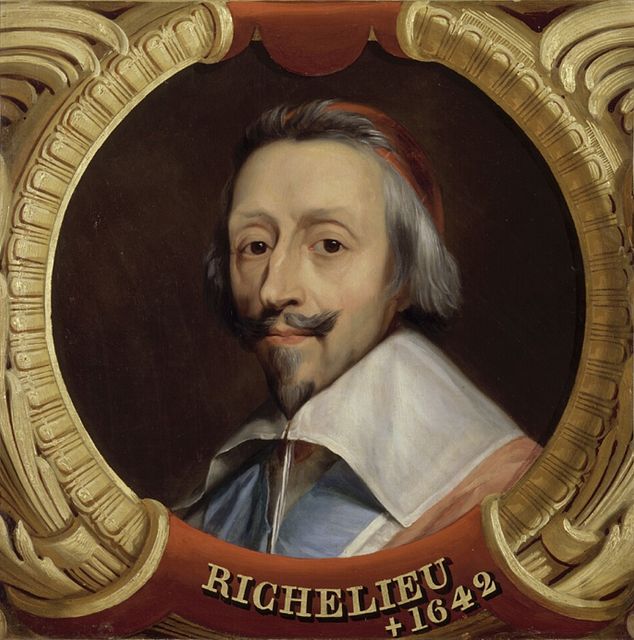
Richelieu mastered statecraft. He strengthened France by centralizing power, defeating rebellious nobles, and weakening the Habsburgs, crushed domestic opposition through an extensive spy network, preemptively eliminating threats before they could challenge his rule. Also, he thought in decades, not news cycles, and reshaped France into an absolute monarchy that remained dominant long after his death. His policies weakened feudal power, solidified France as a European superpower, and set the stage for Louis XIV’s reign. And his rule was ruthless but strategic. His intelligence made him feared and respected. Unlike modern politicians, he was not beholden to donors, nor did he adjust policies to appease public opinion.
Today’s stupid politicians fear controversy. Consequently, they avoid tough decisions, pander to donors, and react to online outrage instead of shaping history. Strong leaders like Richelieu saw politics as a battle for power. In contrast, stupid politicians today act like corporate representatives, waiting for instructions from those who actually control power.
Charles de Gaulle: The defender of national sovereignty
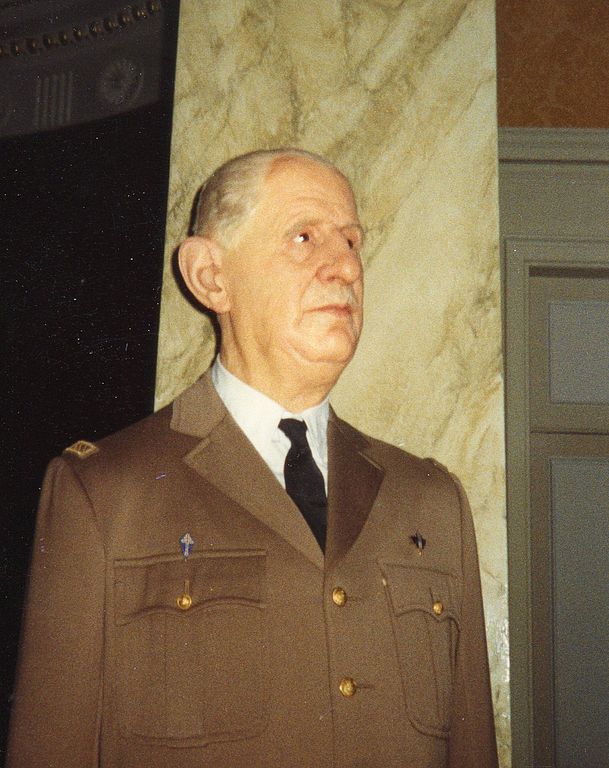
De Gaulle refused to let France become a puppet of foreign powers. He led Free France against Nazi occupation, reasserting national sovereignty and independence. When the Allies sought to impose their control over liberated France, de Gaulle outmaneuvered them diplomatically (in the international politics) and ensured France’s role as a major power (putting back mainly the Jewish capital in the game). Unlike Germany, which remained under U.S. and Allied influence, France retained full control of everything—its military and foreign policy—ensuring that it was not dictated by external forces. As president, he withdrew France from NATO’s military command to prevent foreign interference in national defense, strengthened the economy, and created a political system that has endured crises for decades.
One of the clearest examples of France’s retained sovereignty is how it was never subject to the same level of post-war containment as Germany. While West Germany was tightly bound within NATO and relied on U.S. military protection, France pursued an independent nuclear program with the development of its own deterrent force, known as the Force de frappe. De Gaulle refused to rely on the American nuclear umbrella, ensuring that France could act autonomously in matters of national security.
Germany as a “puppet state”
In contrast, Germany has remained under close U.S. scrutiny, with its leaders subject to direct American intelligence operations (the CIA has been wiretapping German chancellor since the beginning). Where Germany remained politically and militarily dependent on the West, de Gaulle’s policies ensured that France could operate independently without subordination to American or British interests. His leadership was marked by defiance, independence, and strategic decision-making—qualities that are absent in today’s weak political figures.
One of the clearest examples of France’s retained sovereignty is how it was never subject to the same level of post-war containment as Germany.
Winston Churchill: The embodiment of resilience
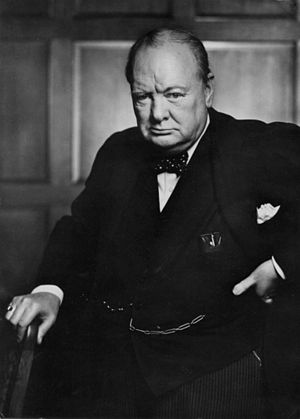
Churchill saved Britain during its darkest hour. At a time when appeasers in his own government sought to negotiate with Hitler, Churchill refused. He understood that war required resolve, not concessions. He galvanized a nation under siege, delivered some of the most inspiring speeches in history, and turned Britain into the last standing European power against Nazi Germany until the U.S. joined the war. His leadership was not based on approval ratings but on survival. He was willing to make unpopular but necessary decisions, unlike modern politicians who cower before media pressure and donor expectations.
Margaret Thatcher: The Iron Lady who defied the system

Thatcher broke the mold of weak governance. When she took office, Britain was crumbling under economic stagnation, powerful unions, and a bloated welfare state. She dismantled socialist policies, privatized failing industries, and revived the economy through free-market reforms, crushed union strikes, including the coal miners’ strike, proving that the government—not unelected labor bosses—would run the country. She stood firm against both domestic and international opposition, including the European political class that sought to erode British sovereignty. Today’s politicians would never dare make such controversial but transformative decisions. Instead, they cave under pressure and settle for appeasement, ensuring continued decline.
These leaders took risks. They focused on results. Their leadership was independent. Most importantly, they had real power. Today’s politicians are not just weak. Instead, they are incompetent. They depend on donors, corporations, and media approval, lack vision. And they lack courage. They do not shape history. Instead, they follow instructions. This is why strong leaders no longer rise in modern politics, while stupid politicians dominate. Consequently, governance has become ineffective, and long-term progress has stalled.
Examples of weak modern politicians
While past leaders took bold, often unpopular actions that shaped history, modern politicians routinely fail in crises. Instead of making decisions for the long-term benefit of their nations, they prioritize optics, polling numbers, and their personal careers. Many contemporary Western leaders mishandled recent economic downturns, choosing to print more money rather than enact real structural reforms. Similarly, during global conflicts, today’s politicians have often hesitated, offering weak diplomatic responses rather than decisive action.
For example, many European leaders have repeatedly failed to develop independent foreign policies, preferring to rely on international organizations for guidance rather than asserting national interests. Similarly, in the United States, politicians from both major parties have prioritized maintaining political alliances over making necessary reforms, leading to stagnation and growing public frustration.
Stupid politicians: Decline in political competence
Public trust in politicians has plummeted. Studies show that in many Western nations, trust in elected officials has reached historic lows. A survey conducted in the U.S. and Europe revealed that a majority of citizens believe their leaders are incompetent and more focused on self-preservation than governing. This loss of confidence directly correlates with the rise of career politicians who have little real-world experience outside of politics.
Political parties no longer prioritize intelligence or competence when selecting candidates. Instead, they favor individuals who are electable—those who appeal to mass audiences through simplistic messaging and social media presence rather than policy expertise. As a result, modern elections are won by those who can craft the best soundbites rather than those with the skills to lead a nation effectively.
A review of political leadership quality over time shows a stark decline in decision-making capabilities. Decades ago, leaders with backgrounds in military strategy, economics, or legal expertise were common. Today, many top politicians rise through party loyalty alone, never demonstrating independent leadership or crisis management skills. This structural shift has led to a political class that is more concerned with maintaining power than enacting meaningful change.
No longer strong leaders: The overgrowth of interest groups
Another major factor in the decline of strong leaders is the unchecked expansion of interest groups. In the past, political leaders balanced various factions while maintaining their own authority. Today, interest groups have grown too large and too powerful, making it nearly impossible for politicians to govern independently. These groups—comprising super-rich families, banks, and lobbyists—dictate policy and exert enormous influence over elected officials.
Instead of acting as representatives of the people, modern politicians must navigate an intricate web of competing interests, each demanding special treatment. The sheer scale of these groups means that no single leader can challenge them without facing political destruction. Policies are no longer designed for national interests but rather tailored to appease the loudest and most well-funded groups. As a result, political decisions are often fragmented, incoherent, and focused on maintaining alliances rather than achieving real progress.
This overgrowth has led to a system where political figures no longer exercise genuine leadership but instead serve as intermediaries between competing power centers. Unlike Richelieu, de Gaulle, Churchill, and Thatcher—who consolidated power and implemented sweeping reforms—today’s leaders are constrained by a vast network of external pressures, rendering them incapable of bold action.
Big money in politics is the real problem
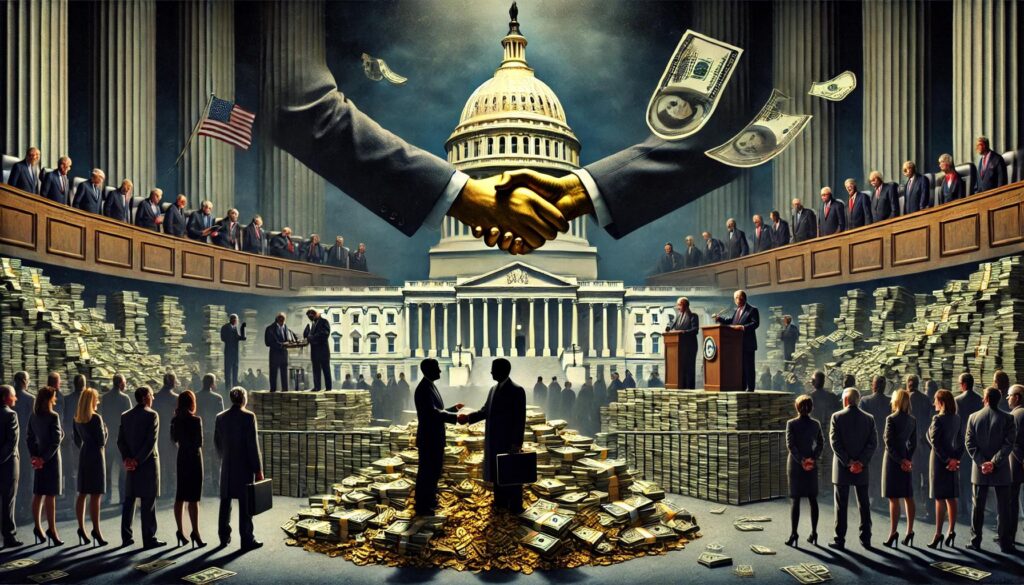
The decline of strong leaders was inevitable the moment politics became an industry rather than a calling. Today, money rules everything. Elections are not won by those with the best ideas. Instead, they are won by those with the biggest budgets, the best PR teams, and the strongest media backing. Stupid politicians dominate because they are willing to play this game. Strong leaders, the kind who once shaped history, are gone because the system no longer allows them to exist.
As long as elections depend on financial backing, politicians will never be independent. They will remain weak, replaceable, and irrelevant. Consequently, the only way to restore strong leadership is to separate politics from corporate money and media influence. Without that, the cycle will continue, and strong leaders will never return.
Who really runs the world?
Politics has changed. It is no longer the domain of strong leaders. The smartest people avoid it. Instead, they go into finance, technology, or business, where they gain wealth, power, and control without public scrutiny. Stupid politicians fill the vacuum. They are not chosen for intelligence or strategy but for obedience. Consequently, decision-making is dictated by external forces rather than by elected officials.
The real rulers are not presidents, prime ministers, or chancellors. Instead, they are the super-smart lobbyists, super-rich families, and big banks that decide economic policies, fund election campaigns, and control legislative agendas. These people do not waste their time running for office. They do not need to. Instead, they influence everything from behind the scenes. This is why strong leaders have disappeared, while stupid politicians continue to rise. As a result, political power is no longer in the hands of the people but in the hands of financial elites.
The real-world consequences of political incompetence
The failure of modern political leadership does not just affect governments—it has direct and devastating consequences on the daily lives of ordinary people. When strong leaders are replaced by weak, incompetent politicians, societies suffer at every level. From economic instability to failing education systems, from weakened national security to declining infrastructure, the ripple effects of political mismanagement are impossible to ignore.
Stupid politicians: Economic decline and worsening living standards
One of the most immediate consequences of political incompetence is economic failure. Weak leaders, beholden to financial elites rather than national interests, fail to implement policies that create sustainable economic growth. Instead, they rely on short-term fixes such as money printing, excessive taxation, and government bailouts, all of which erode economic stability. In many nations, inflation has soared due to reckless monetary policies, diminishing the purchasing power of citizens. Rising unemployment and wage stagnation further contribute to a declining standard of living.
Moreover, small businesses, the backbone of many economies, suffer under burdensome regulations and ever-increasing taxes. Instead of supporting innovation and entrepreneurship, incompetent governments cater to monopolistic corporations and lobbyists who shape economic policies to benefit themselves rather than the public. The result is a shrinking middle class, an over-reliance on government assistance, and growing income inequality.
Weak foreign policy and diminished global influence
Strong leaders historically understood that maintaining a nation’s sovereignty and influence required decisive foreign policy. Today’s politicians, however, are more focused on maintaining good public relations than defending national interests. This incompetence is reflected in failed diplomatic efforts, weak military strategies, and an inability to negotiate beneficial international agreements. Nations with weak leadership are easily manipulated by global institutions and foreign powers, leaving them vulnerable to economic and military threats.
A clear example of this is the declining influence of Western nations in global politics. While past leaders established strong alliances and ensured military preparedness, today’s politicians prioritize performative diplomacy over real strategy. Their failures in securing trade agreements, maintaining strategic military alliances, and countering geopolitical threats leave their nations at a disadvantage, with ordinary citizens paying the price through economic downturns and increased security risks.
Failing education systems and the decline of intellectual capital
Education is another casualty of political incompetence. A nation’s future depends on the intellectual development of its youth, yet modern politicians have prioritized ideological battles and bureaucratic expansion over actual educational improvement. Instead of fostering critical thinking and innovation, many education systems have been reduced to political battlegrounds where policies are dictated by activist groups and corporate interests rather than educational experts.
The consequences are severe: declining literacy rates, reduced STEM proficiency, and an increasing skills gap that leaves graduates unprepared for the modern workforce. Countries that once led the world in scientific research and technological innovation are now struggling to produce competent professionals. The lack of investment in meaningful education reforms means that future generations will be less equipped to solve complex global challenges, further exacerbating economic and social decline.
Crippling infrastructure and public services
Another hallmark of failing leadership is the neglect of critical infrastructure. Strong leaders of the past prioritized large-scale infrastructure projects, ensuring efficient transportation, energy stability, and well-maintained public facilities. Today’s politicians, however, waste resources on bureaucratic inefficiencies and short-term political projects instead of long-term national development.
The result is failing roads, deteriorating public transport systems, and power grids that struggle to keep up with demand. Instead of funding necessary improvements, governments allocate budgets to politically convenient but ultimately ineffective initiatives. The impact on daily life is undeniable: longer commutes, higher costs of living, unreliable public utilities, and a reduced quality of life for millions.
Rising crime and social instability
Weak political leadership also leads to lawlessness and increasing crime rates. Incompetent politicians who prioritize ideological narratives over public safety enact policies that embolden criminals and weaken law enforcement. The failure to maintain law and order results in growing violence, higher rates of property crime, and social unrest. Citizens in many countries no longer feel safe in their own neighborhoods, while political leaders refuse to acknowledge or address the root causes of rising crime.
Furthermore, growing social divisions fueled by political mismanagement make societies more fragmented and unstable. Instead of uniting people under common goals, modern politicians thrive on polarization, deepening societal fractures rather than bridging them. The long-term consequences are declining national unity, a loss of shared identity, and an inability to rally the population toward productive endeavors.
The consequences are clear: The world needs strong leaders again
The decline of strong leaders has left nations weak, unstable, and vulnerable. Without decisive leadership, societies crumble under economic decline, social unrest, and geopolitical instability. Governments no longer serve their people. Instead, they cater to super-rich families, banks, and lobbyists who shape policies for their own benefit. As a result, ordinary people struggle while those in power accumulate wealth and influence.
Political incompetence has consequences that no one can ignore. Inflation erodes savings. Crime makes neighborhoods unsafe. Failing education systems leave future generations unprepared. Weak foreign policies allow stronger nations to dominate global affairs. Infrastructure crumbles while politicians make empty promises. The world is moving backward because leaders refuse to take control.
But strong leaders can still rise. The system is broken, but it is not beyond repair. But people must get rid of clientelism first, then demand for the strong personalities to gain power. No corruption, no special interests, media checking each other for clientelism and exposing clientelism in the highest political circles.
History has shown that strong leadership transforms nations. Richelieu, de Gaulle, Churchill, and Thatcher proved that real change requires vision, courage, and decisive action. Without strong leaders, the cycle of decline will continue. But with them, societies can thrive again. The choice is clear: keep allowing incompetent politicians to rule, or demand the return of true leadership that serves the people first.
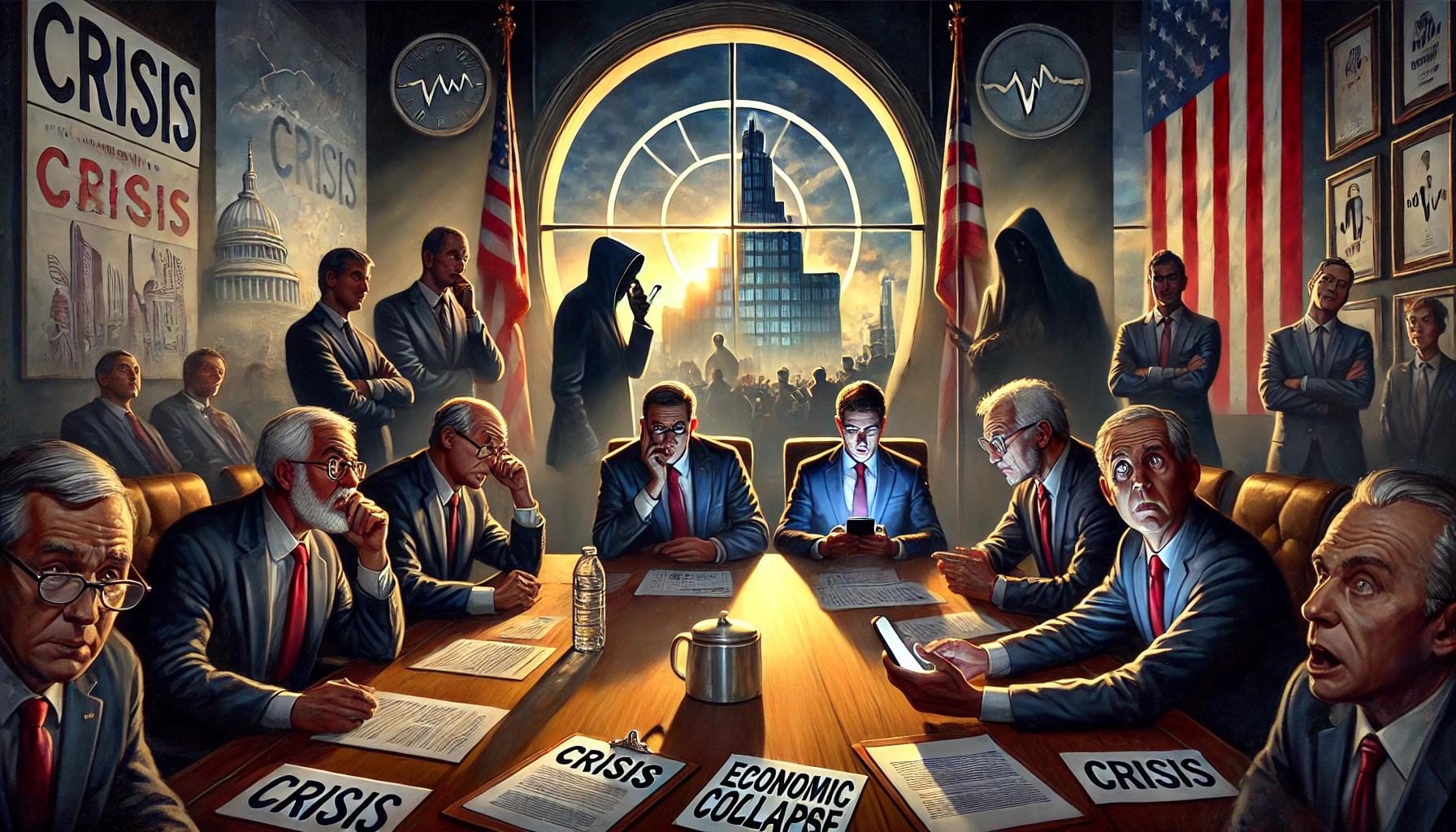
Leave a Reply